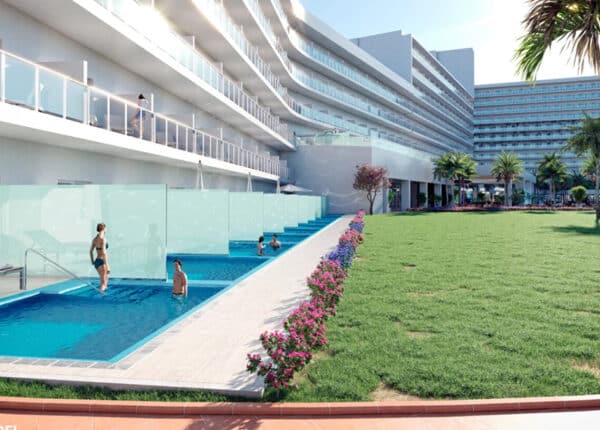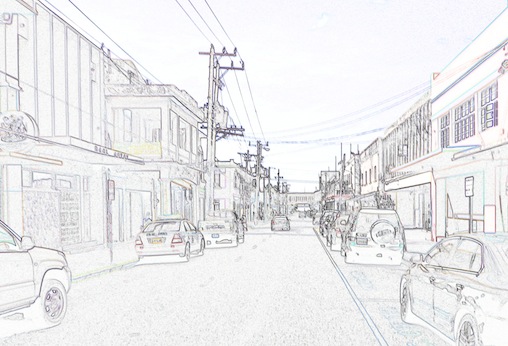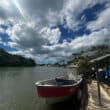By Dennis Chung
CJ Contributor
AS I READ the Dec. 29, 2012 statement, issued by Jamaica’s Finance Minister concerning the status of the International Monetary Fund negotiations, I thought to myself that it is not clear when Jamaica is to expect an IMF agreement.
I say this because both the Minister’s statement and the one issued by the IMF are unclear about a timeline. In fact, the timing seems to be dependent on the achievement of certain prior actions. I am not sure what the prior actions are, but certainly one thing came to the fore. The fact that “…the examination of even higher primary surpluses in the medium term to underpin targets for debt reduction” was mentioned means, to me, further expenditure cuts.
If you look at Jamaica’s fiscal accounts to November 2012, it shows that the country’s fiscal deficit is off target by approximately J$2 billion, but deeper examination shows that this is as a result of expenditure coming in J$8 billion less than projected, and revenues underperforming by J$10 billion. So we have sought to maintain the fiscal deficit target by reducing expenditure which, in my view, means further weakness in the economy.
If one examines the recent history of the IMF programme, and in particular Greece, you will see that the emphasis is on debt reduction via reduced fiscal expenditures. In my view, this will not have any significant benefit for Greece.
In fact, it is the primary cause of the social disruptions and the hardships they face. In short, the IMF cannot point to any success under that approach. Moreover, we see where even Germany is beginning to feel the effects of the weakening euro economy.
Any recovery in global markets will be buoyed by the US, and to a lesser extent China, and both economies have gone the path of fiscal stimulus.
I say all of this to bring the reality home that if it is that the IMF insists on drastic spending cuts, such as reducing the public sector or cutting back on capital expenditure, then I would expect that the government, in its wisdom, must resist. We have already seen what the 2010 IMF programme has amounted to, and to continue on a path that has proven not to work can be defined as nothing else but madness.
We therefore need to support the Minister in his resistance to any such measure and must face the reality that we must have an alternate plan for Jamaica without the IMF.
But what does this mean for us?
In order to answer that, we have to look at what the main challenges faced by the country are and mitigate the risks of not having an IMF agreement in place. The major risks of not having an agreement in place are (1) finding approximately US$250 million for debt payment; (2) funding the budget shortfall because revenues are underperforming and (3) eliminating the foreign currency shortfall.
An IMF agreement would deal with these three main issues. However, if the prior action for the agreement is that we must lay off significant number of public sector workers, increase taxes, and/or reduce further capital expenditure, then we will find ourselves back in the current situation shortly; particularly if we fail to take the fiscal policy decisions that are necessary for economic development, with or without the IMF.
There are, of course, some realities that we have to face and some actions that we need to take if we are going to achieve the economic development that has eluded us since the 1960s. What is required to take these decisions is more political will than anything else.
Let us assume that we have the political will, and also that there is no IMF agreement. How can we then mitigate the risks mentioned above and at the same time see a path to economic development.
The first thing we need to do is ensure that we have adequate foreign currency in the system to pay the maturing debt and also to satisfy the demand for production and consumption.
Addressing first the debt maturity, I am sure that we can find a way to pay the maturity as it arises. It is just a matter of cost of funds. I am sure that Ministry officials must already be doing their homework.
The way for Jamaica to satisfy the foreign currency shortage is in my view to immediately address the thorn of energy and food costs. These amount to 45 per cent of imports and can significantly reduce the foreign currency deficit if addressed decisively and radically through fiscal policy. I have discussed a lot in the past and so will not go into any details. However, an example is when I pointed to the need to not remove the GCT on electricity but rather set up a fund where “tax-compliant” persons would be given a credit from that fund if they were to set up renewable energy at home. If we had taken that approach we would have today seen a reduction in oil imports. The will needs to be there first, and Jamaicans must start making demands based on future benefits and not only immediate ones.
The other problem which will remain is how to deal with the need for funds to finance the fiscal expenditure. The solution is certainly not to cut the public sector but rather to address the issues of bureaucracy and law and order.
Again, I have spoken to about three issues repeatedly — energy, bureaucracy, and law and order. Therefore, I will not go into details, but suffice to say these three will add over $100 billion to the economy, if the proper fiscal policy initiatives are taken in a decisive manner.
Because we have not addressed these matters before however, the solution is not going to give us the immediate result we need for this year’s fiscal accounts. However, if we start addressing these now, then in six months I think we can start seeing results.
This will happen, however, only if we start and act decisively, or else the only option may well be the very bitter medicine of the IMF.
Dennis Chung is a chartered accountant and is currently Vice President of the Institute of Chartered Accountants of Jamaica. He has written two books: Charting Jamaica’s Economic and Social Development – 2009; and Achieving Life’s Equilibrium – balancing health, wealth, and happiness for optimal living – 2012. Both books are available at Amazon in both digital and paperback format. His blog is dcjottings.blogspot.com. He can be reached at drachung@gmail.com.







